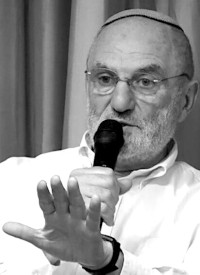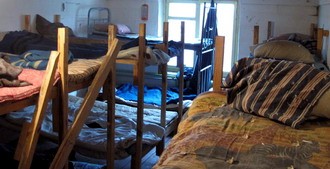
“It’s like this. You’re workers. You pour concrete forms. You’ve been hired to work at the construction site with our crew, and you’re moving into the barracks. Does everyone got that?” our guides instruct us.
They are real concrete layers. They have agreed to show us the living and working conditions of the people building the main venue for the 2012 UEFA European Football Championship.
We stand amidst old garages on the shore of a fetid sewage drain only two hundred meters from Lybidskaya metro station – almost in the city center by Kyiv standards. Here, behind a fence, is a two-story shack inhabited by construction workers. Employees of a security company guard the entrance to the lot. We must try to not engage them in conversation and immediately go to the barracks under the cover of our “foreman.”
According to the workers, this illegal hostel for “guest workers” [zarobitchani – see Translator’s Note, below] was built only a few years ago, before “the Euro.” But the floor in the barrack is as black as in century-old homes. There is dirt everywhere here – no traces of cleaning or compliance with even the most primitive sanitary norms. A narrow corridor leads to tiny rooms filled with crudely assembled two-storey bunks. Each of these small rooms contains sixteen such beds, but, according to the workers, sometimes there have not been enough beds, and people have slept on the floor, using their own clothes or a blanket for a mattress. It is daytime now, and most of the room’s inhabitants are at work – on the construction sites at Olympic Stadium and the new passenger terminal at Boryspil Airport.
The poor sanitation and poverty of the room to which we have been brought are stunning. The wooden bunks, fitted with dirty mattresses, are broken in several places. There is garbage on the floor and a tin filled with cigarette buts. The nightstands between the beds are covered with dirty plates, packets of instant soup, and pieces of dried bread. The air in the room is stuffy, although the window is open. There is also garbage piled outside the window in which rats are scurrying. But beyond the fence topped with barbed wire you can see golden domes lying lined up on the ground: next door, work is under way on the largest cathedral in Ukraine, and there is a brisk trade in church paraphernalia going on there.
“Look what our people eat,” our “foreman” Vasily Pastushenko tells us as he opens the nightstands for us. “Poor people live here. The employers promise money to the workers, but then they just screw them over. They owe each of us three and half thousand hryvnias [approximately 350 euros], but they gave us a hundred hryvnias each in cash. And that was before the holidays! People didn’t even have enough money to travel home. And they also deduct twenty hryvnias a day for this ‘housing’ here.”
There is a latrine instead of a toilet in the barracks – several closed buckets in a separate room. It is impossible to cook here: the workers use only an electric water-heating wand as they are forbidden to use gas-powered heating devices. A few years ago, seven guest workers died of carbon monoxide poisoning in a similar shack near Kyiv.
“This is how we live. We envy Yulia Tymoshenko – her prison is like paradise compared with our shack. It’s never heated, and there is no insulation. In the winter, there would be frost on the walls in the mornings, and everyone went to work sick, some even with a high temperature,” the workers tell us as we photograph the room.
We had very little time to do this: a few minutes later the commandant ran into the room. He had a black eye and had obviously been drunk since morning (although the guards forbid workers from drinking in the barracks). He took us for fired workers and yelled at us, pointing to some other people’s bags.
“You don’t fucking live here anymore! Take your bags and scram. I’ll give you ten minutes.”
“We had money deducted from our wages for accommodation. But we haven’t been paid yet. You have no right to kick people out,” our foreman tried to argue. But everyone headed for the door. Conflicts with the security guards had never ended well for the workers.
Vasily Pastushenko, a native of the town of Uman, heads a group of fifteen guest workers hired for construction of Olympic Stadium who were deceived by their employers.
“They promised us mountains of gold. They practically said that [Ukrainian prime minister Nikolai] Azarov would pay us our wages. The facility, a parking lot at the stadium, has to be finished by the first of May, but they’re already behind schedule and have hired a bunch of people. Moreover, it’s not the firm itself that is doing this, but subcontractors or even sub-sub-subcontractors,” Vasily laughs. “They’re the ones who do the hiring, but the firm is out of the picture as it were. We go to them to get paid, but they don’t even know us, although we built everything here.”
“Everything here is muddled. They say the contracts for Euro 2012 were handed out in exchange for huge kickbacks – up to twenty-five percent of the total value of the contracts. Well, in order to ‘recapture’ all this money, they economize on us, the workers. They hire us without contracts or work agreements, scam us every step of the way, and house us in bestial conditions. At the same time, millions are being embezzled here. When I saw our accountant driving a Mitsubishi Pajero SUV, I immediately realized we wouldn’t see our money.”
We go with the workers to the construction site, getting in using the same legend that we are “concrete layers.” On the hill above the bowl of Olympic Stadium, where the Euro 2012 finals will take place, several hundred men, nervously urged on by supervisors, work right next to a precipice. It is a sight reminiscent of the building of the Great Pyramids.
“Look over there: a middleman has just brought some new workers. And those are the rescuers over there,” Vasily points. “Lest someone gets into an accident. While we’ve been working here, several workers have been killed at the site.”
I immediately remembered how the leader of a guest workers union had told us in an interview about injuries at Olympic Stadium. According to him, employers do not even know who is working for them, a fact that came to light only after the tragedies
“And work safety? Does anyone monitor it?”
“Work safety,” Vasily grins ironically. “A supervisor came to my crew once, to give us safety instructions as it were. He mumbled something to those who were present and then made as if to leave. I say to him, ‘Wait a second until all our people have gathered.’ He says to me, ‘Fuck off. You can tell them yourself.’
“No one complies with safety regulations when working at heights. We work without safety straps, and no one requires it. If someone is injured, then formally he didn’t work here. There was a kiosk at the site that sold all kinds of food at inflated prices and even beer – this at a construction site, where alcohol always leads to injuries. But we were issued only gloves and crappy boots, and even then not enough for everyone. It’s pointless to talk about the quality of work done in such conditions.”
We walk around the construction site, and the workers show us metal containers, piled with heaps of garbage.
“Look, people are living in each of these boxes. Right here on the construction site. We’ve spent the night here ourselves more than once. One of our guys became seriously ill, but he couldn’t move out or pay for himself. And we had no money to help – they don’t pay our wages. So they came to throw him out,” says Vasily.
“I asked them to wait a day. I said I’d come from my shift [the next day] and bring them money for him. But they wouldn’t have any of it.”
Those who do not want to live in the barracks often settle in illegal hostels for guest workers in private flats. Two such flats – separate ones for men and women – are located on my street, on the outskirts of Kyiv’s Pozniaky neighborhood. Olympic Stadium construction workers familiarized us with the interiors of these flophouses, which charge twenty to thirty hryvnias a day [i.e., up to three euros]. Each room contains ten beds. However, married couples cannot live together, and tenants are not allowed to enter the flat after midnight, listen to music or have guests (even their own husbands or wives) without special permission from the owners. Living with children is also strictly prohibited. Violators are evicted or turned over to the neighborhood police inspector.
There is a similar dormitory on Decembrists Street, in a building where the honest-fisted Klitschko brothers once lived, and it is far from the only such place in the blocks of the Darnytsia district. According to the guest workers, this is a systematized business nowadays. The owners of the apartment hostels are usually connected to the people who supply labor to the construction sites. They often are one and the same people, and find it easy to come to an agreement with the police. If you have seen newspaper ads for high-paying jobs with low-cost housing included, then likely as not they were ads for barracks and construction sites where wages are not paid.
In six weeks’ time, millions of TV viewers will gaze at the bowl of Olympic Stadium, where VIPs from all over Europe will gather. It is important that they know about the living and working conditions of the people who built these football facilities. It is important that they see Ukraine not through the gloss of tourist brochures, but the way it looks in the gloomy workers’ barracks in the center of the capital.
Photos by Ilya Derevyanko
Article printed from chtodelat news: http://chtodelat.wordpress.com
Оригінал статті : http://liva.com.ua/workers-shacks.html
-
Історія
Африка и немцы - история колонизации Намибии
Илья Деревянко история колонизации Намибии>> -
Економіка
Уолл-стрит рассчитывает на прибыли от войны
Илай Клифтон Спрос растет>> -
Антифашизм
Комплекс Бандеры. Фашисты: история, функции, сети
Junge Welt Против ревизионизма>> -
Історія
«Красная скала». Камни истории и флаги войны
Андрій Манчук Создатели конфликта>>

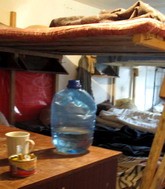











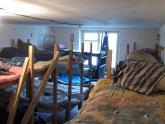
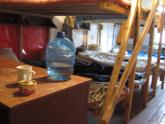
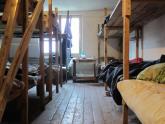
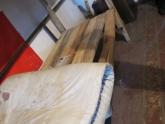
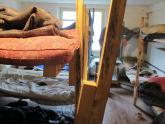
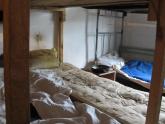
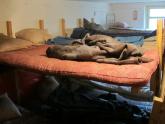
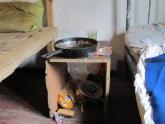
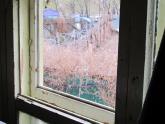
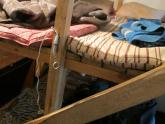
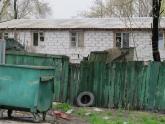
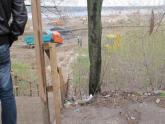
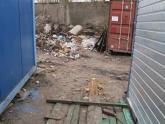
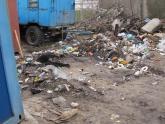
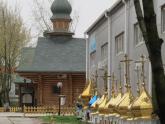
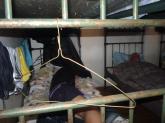
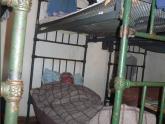
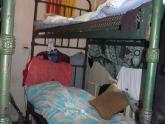
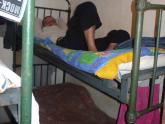
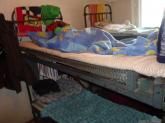
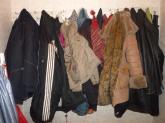
 RSS
RSS



